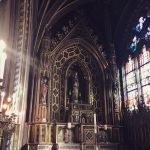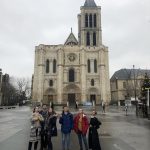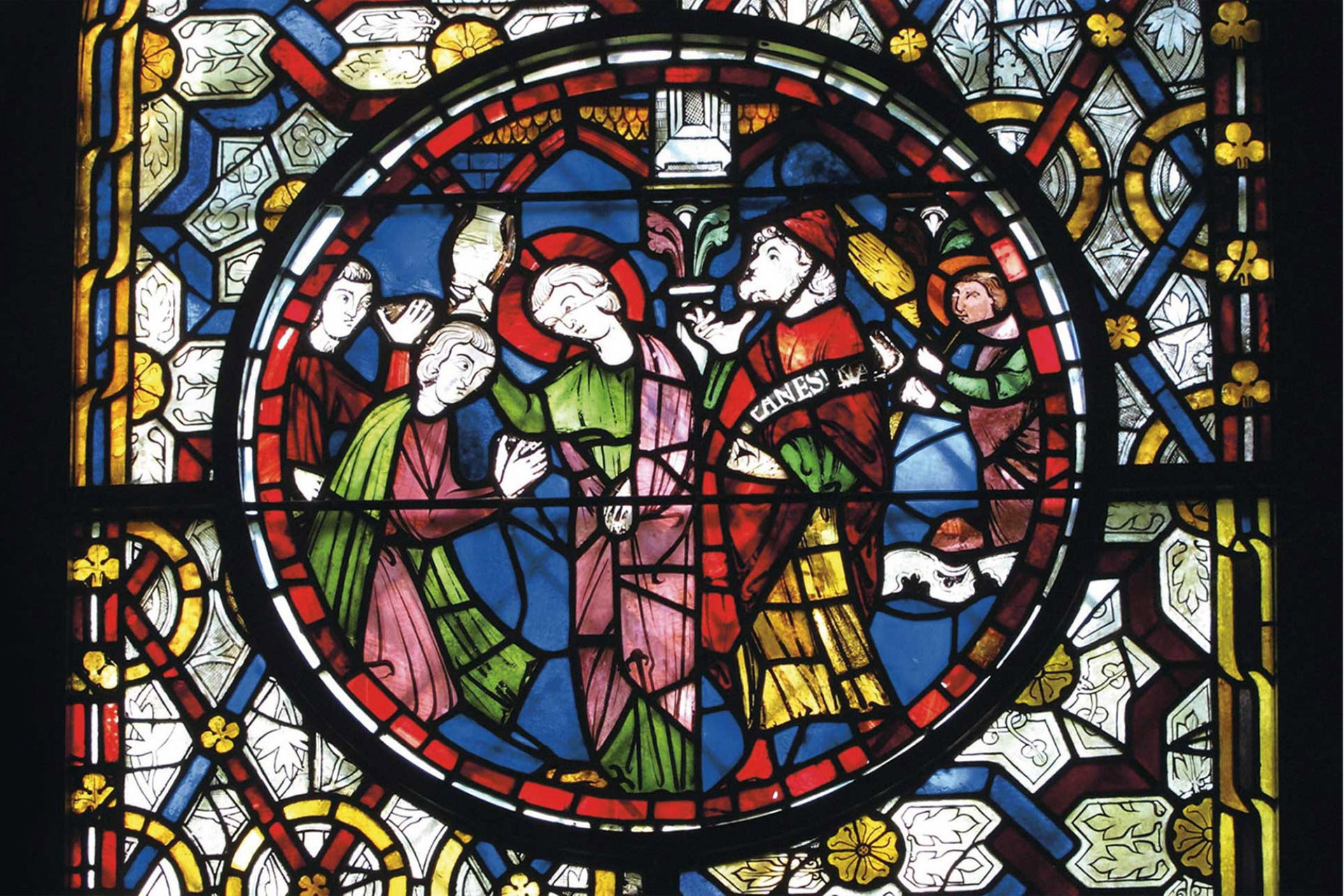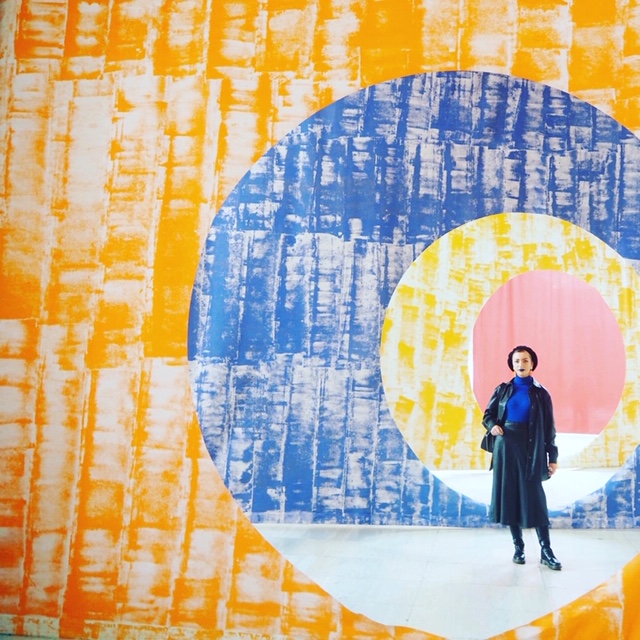Annabelle Stephenson is nearing the end of her Master’s degree studies with MEMS, and was one of the first-ever students to take up the opportunity of sharing her year between Canterbury and Paris on our new dual-city MEMS MA. Annabelle tells us about her experience of the programme and living and learning in two cities:
What attracted you to this course?
Besides the amazing opportunity to study in both Canterbury and Paris – two cities saturated in medieval history – it was the interdisciplinary nature of the course that attracted me to it. I came from an English Literature background, however I wanted to explore my growing interest in medieval art and architecture. I have found that throughout the Master’s I have been able to delve deeper into medieval literature whilst exploring art, illumination, sculpture and architecture. Being such an interdisciplinary course has enabled me to approach essays and the dissertation in a creative and original way.
 What are you particularly enjoying about your studies?
What are you particularly enjoying about your studies?I am particularly enjoying the practical aspects of study. I have been able to access – and touch (!) – a wide range of manuscripts in the Canterbury Cathedral Archives, the Bibliothèque Nationale de France, Paris and the Bibliothèque Sainte Genevieve, Paris. Hopefully not too much of a cliché, but being able to handle the manuscripts has really brought my studies to life. At the same time, I have been able to appreciate the materiality of the ‘book’, a concept so vital to its medieval reception. Without doubt, the Latin and Palaeography modules have been invaluable in aiding my reading of the manuscripts, meaning that I can truly engage with them and form my own thoughts and ideas.
What is it like living and studying in Paris?
It is immersive, rich and caffeinated! Paris is a palimpsest of history that you can almost feel beneath your feet. It vibrates with creativity, there are so many museums to explore, and each arrondissement has a different feeling. I underestimated how great an experience it would be to study in the city I am learning about. One day, I can study in the library dedicated to the Patron Saint of Paris, and on the way back visit the church where her relics are kept, and the next I can visit the Sainte Chapelle, a spectacular feat of Parisian gothic architecture.
 Which modules have you enjoyed the most?
Which modules have you enjoyed the most?My favourite module has been Gothic Art and Architecture which I took whilst staying in Canterbury, not only because of the trip to Paris, but because it was so interesting to trace the development of architecture from the Romanesque to the Gothic. The module is incredibly wide-ranging and rich, drawing upon the aesthetic, ethical, ecclesiastical and political aspects of medieval architecture.
How would you describe your fellow students?
Creative, enthusiastic, engaged.
How do you think postgraduate study differs from undergraduate study?
Postgraduate study is more self-directed and there is the opportunity to produce work that can make real scholarly impact. It is exciting because material in the modules is from current research, taught and presented by researchers at the top of their field.
How do you think your studies will affect your employment prospects?
As well as vastly improving transferable skills such as time management, organisation, problem solving and writing, I feel the Master’s will enable me to pursue a specialised career – for example, in curation or archival work. Throughout the degree, there have been valuable skills workshops, important practical sessions and talks from professionals at the National Archives. These have really helped give an understanding of career paths and the possibilities the degree
enables.
 What are you planning to do next?
What are you planning to do next?I am considering doing a PhD building on my Master’s dissertation I plan to write. It is only after the first term of this degree that I even thought about pursuing a PhD, however I feel it is easy to be swept away by passion for a subject! By teaching practical modules such as Latin, Palaeography and Codicology, this course has instilled a confidence in my ability to face primary sources head on and to ultimately produce original research that contributes to the field.
Any advice for those thinking about taking this course?
Latin is hard! But stick at it because it is so worth it. If you are passionate about any aspect of Medieval Studies, or even a mixture of aspects like myself, then feel assured that you will be able to pursue your interests. At the same time, be open to exploring disciplines within the Centre that you may not have done before, such as archaeology, literature or art history. Embrace interdisciplinarity and interact with your fellow students who have done their undergraduate degrees in a variety of subjects.
To find out more, or to apply for, the Medieval and Early Modern Studies MA (Canterbury and Paris) see our online prospectus entry.

